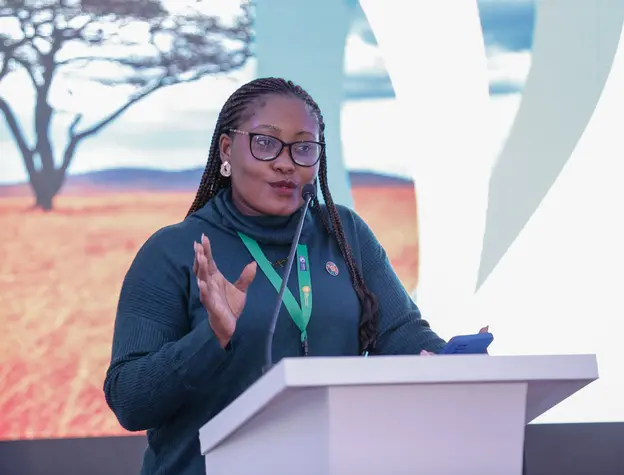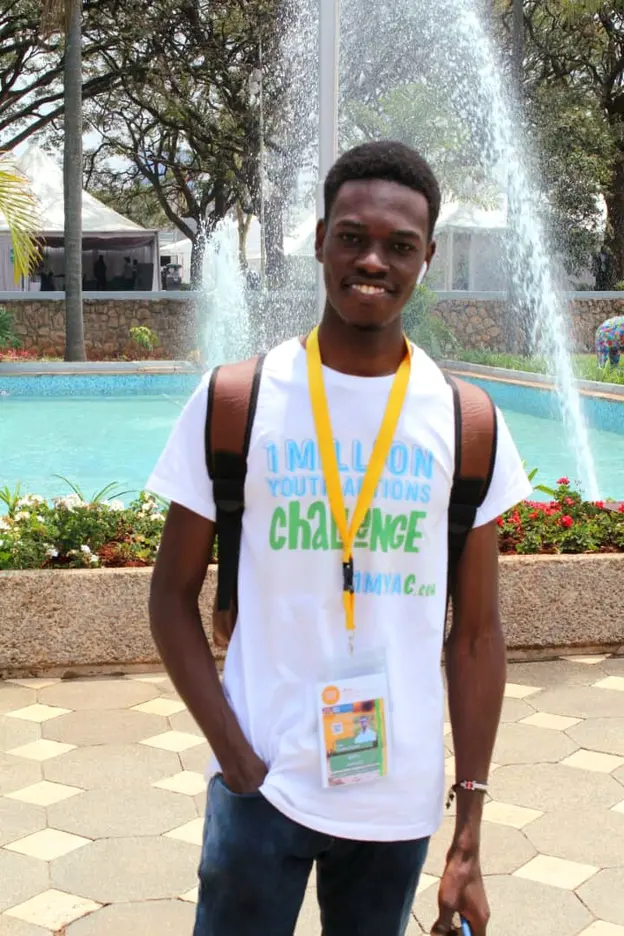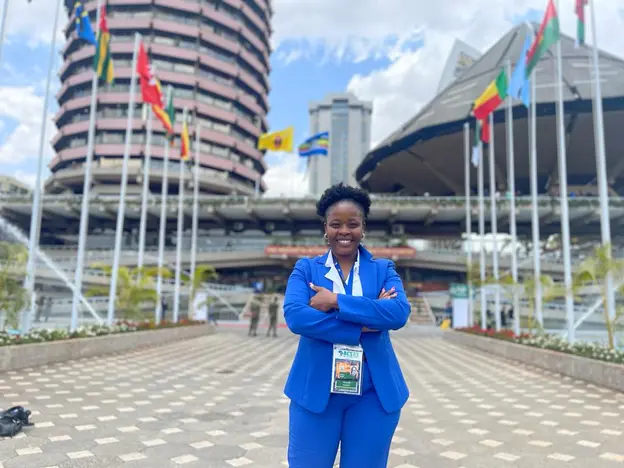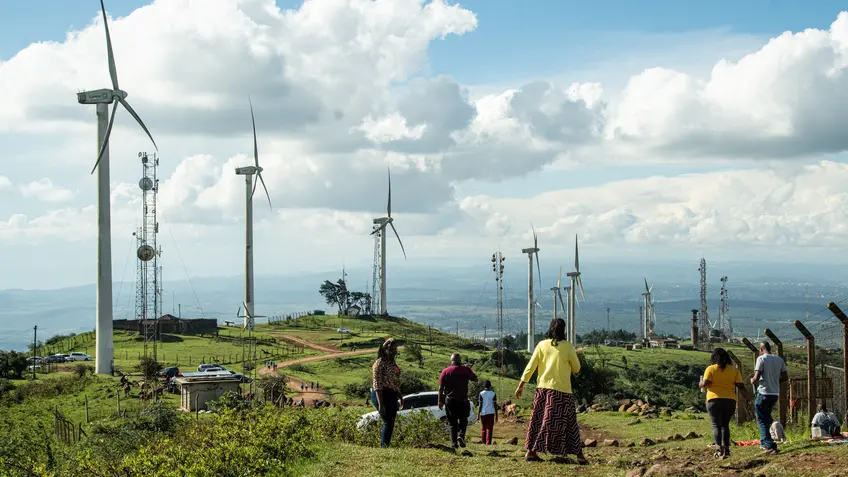Youth Reflections on Africa Climate Week and Summit
From 4-8 of September, the Government of Kenya hosted the Africa Climate Summit and Africa Climate Week. The two events were preceded by the Africa Youth Climate Assembly which aimed to unite and amplify African youth voices in addressing climate change. “These meetings are important,” remarked Busiswa Noyise Dlamini, Chairperson of Hlumisa and the Eswatini EU Youth Advisory Board, “They bring fresh perspectives, unify people and promote exchanges of ideas and information, exposing young people to opportunities and ideas to bring home to their countries.”
In his opening remarks at the Youth Climate Assembly, the President of the Republic of Kenya, H.E. Dr. William Samoei Ruto, C.G.H, stated that, “I am here to say to you, the young people of Africa, that you have a crucial role to play today. Africa’s youth are a pivotal part of the solution. Your engagement paves the way and inspires us. We rely on your entrepreneurial spirit, your capacity to innovate and your courage to challenge us, your political leaders. Demand accountability from us, demand that we set our sights on the future – our future, your future.”
Events like the Africa Youth Climate Assembly showcase the growing momentum of youth involvement and leadership within international climate gatherings. Karishma Ansaram and Elizabeth Gulugulu of YOUNGO, Candy Darkwa of GAYO, Agnes Mwendwa of the Commonwealth Youth Climate Change Network, Busiswa Noyise Dlamini of the Eswatini EU Youth Advisory Board and Clive Donnely of the 1 Million Youth Action Challenge were in attendance. The NDC Partnership Support Unit asked them to share their reflections on the discussions and outcomes.

Karishma Ansaram, Elizabeth Gulugulu, Official Children and Youth Constituency of the United Nations Framework Convention on Climate Change (YOUNGO) members
What insights did you take away from the week?
Elizabeth, Karishma, Candy: There was a tremendous amount of vibrant energy and incredible momentum that permeated the entire week. The young participants truly reaped the benefits of the various youth-led events, training, capacity buildings and intergenerational dialogues that took place. It was evident that these experiences had a profound impact on them and were curated for youth to have practical takeaways. However, challenges and gaps emerged, such as an information gap on accessing climate finance, lack of skills to implement NDCs and a need for capacity building to continue discussions in a meaningful and inclusive way.
Agnes: The theme throughout the week, as well put by Vanessa Nakate, the climate activist from Uganda was “African-led solutions for African people, by Africans and on African terms”. Much needs to be done to ensure inclusivity and involvement of all people as actors in climate policy.
Busiswa: Youth need to actively engage in politics, not only by advocating to change policy but actually joining the decision-makers.

Candy Darkwa, Green Africa Youth Organization (GAYO) member
What did you observe regarding capacity and knowledge needs?
Clive: There is a notable gap in financial support when compared to commitments made in years past. Reducing this gap is critical to enhance efforts and advancements to address climate capacity gaps in Africa.
Busiswa: “Capacity” has been the most frequently heard word this week. Young people know what they want and are communicating solutions to their problems. It is still important to capacitate young people, so their contributions are more impactful, and that education translates to opportunities in the job market.
Agnes: There is a need for training of Africans by African experts using Global South models and a need to build youth capacity using African knowledge.
Elizabeth, Karishma, Candy: YOUNGO has launched the Youth Needs Analysis for Capacity Building report during a Youth4Capacity in Africa Climate Week. Capacity building efforts are still very much essential. However, a number of actions are being implemented and would benefit from streamlining, especially as resources are needed for youth-led actions as well. The report puts forward the need to tailor capacity-building initiatives to regional and local contexts. In addition, it sheds light on implementation of training beyond the key themes of mitigation and adaptation to offer granular and specialized themes to youth.

Clive Donnely, Youth Climate Policy Advisor, 1 Million Youth Action Challenge
How did climate finance discussions address youth perspectives or access?
Agnes: Dissatisfaction with the current flow of finance and unattained pledges dominated discussions.
Clive: There is still a wider gap to bridge to enhance youthful involvement in climate finance.
Elizabeth, Karishma, Candy: This year, the Africa Climate Summit and Africa Climate Week were focused on one of the most pressing issues to effectively combat climate change – climate finance. Young people are often at the forefront of innovation and creativity, especially Africa, which has a young population that has the potential to unlock climate solutions domestically. We need overarching initiatives to improve access to climate finance by moving beyond small grant programs to the provision of other financial instruments such as venture capital, green bonds and more.

Agnes Mwendwa, Commonwealth Youth Climate Change Network Policy and Advocacy Unit Lead
How did the events highlight meaningful youth participation in policymaking?
Elizabeth, Karishma, Candy: We recognize and appreciate the support provided to youth-led events and the additional space during climate weeks. However, to our disappointment, the Nairobi Declaration did not have a single mention of a youth-oriented climate pledge. Youth have highlighted the lack of communication and transparency, lack of support, and especially the gatekeeping policy measures that deter youth engagement in climate policy.
Resource: YOUNGO’s African Youth Needs for Climate Actions
Agnes: Outside the formal events, there was discontent with current policymaking – with communities and vulnerable groups left behind and a lack of accessibility (e.g. local dialect translations) driving frustrations.
Clive: The Africa Youth Climate Assembly developed a declaration on youthful inclusion, but it wasn’t factored into the Nairobi Declaration.

Announcement: African Development Bank President announced a $1 billion facility to accelerate climate finance to Africa’s youth businesses
Announcement: African Climate Innovation Challenge announces five 2023 winners at Africa Youth Climate Assembly
Young people today stand to inherit a future significantly shaped by climate change. We have to ensure that youth engagement does not become a tokenistic, symbolic gesture but translates into significant engagement with tangible outcomes. Young people must have a clearly defined and significant role in shaping climate policy and action on both the national and global stage, shaping their own future through today’s decision making.
The NDC Partnership is committed to increasing the capacity and involvement of young people in shaping national climate priorities through the Youth Engagement Plan and annual Youth Engagement Forum.
